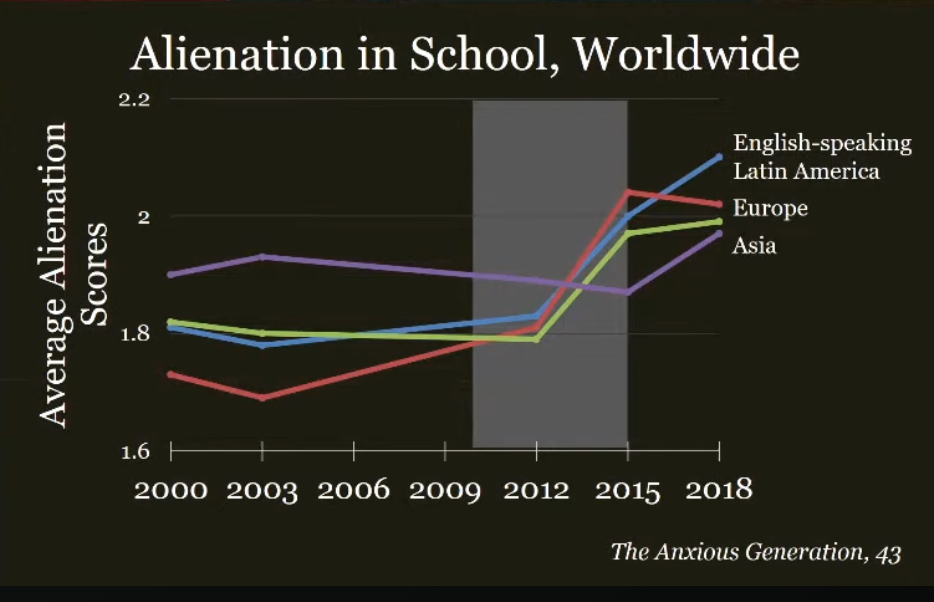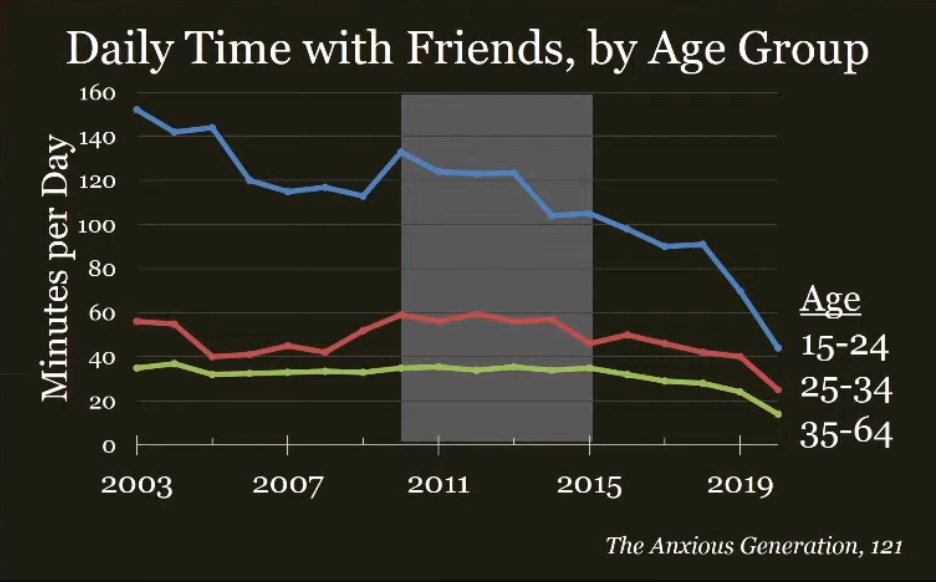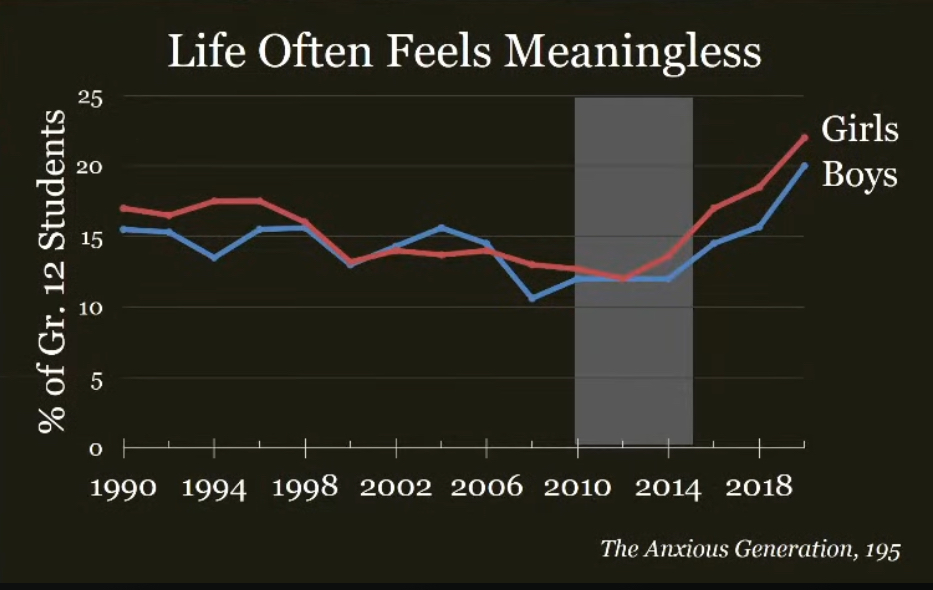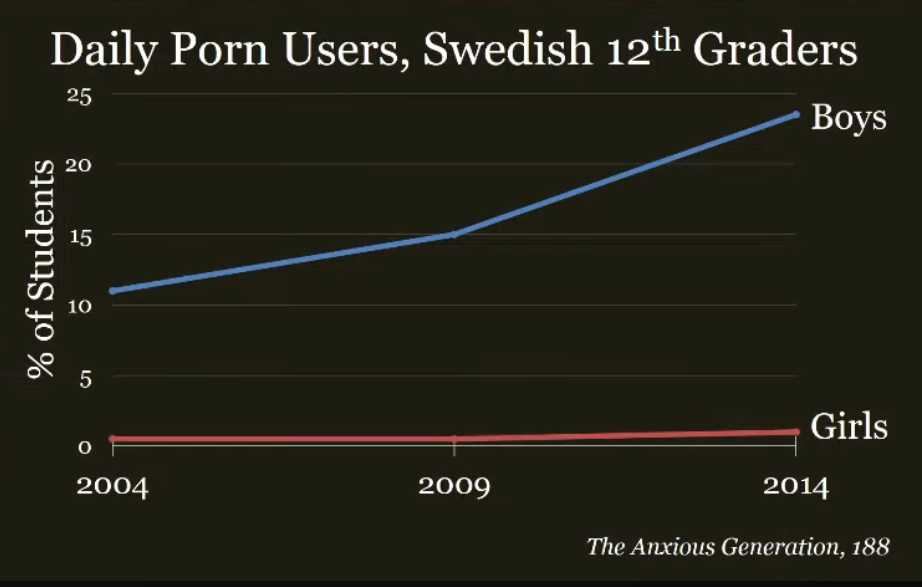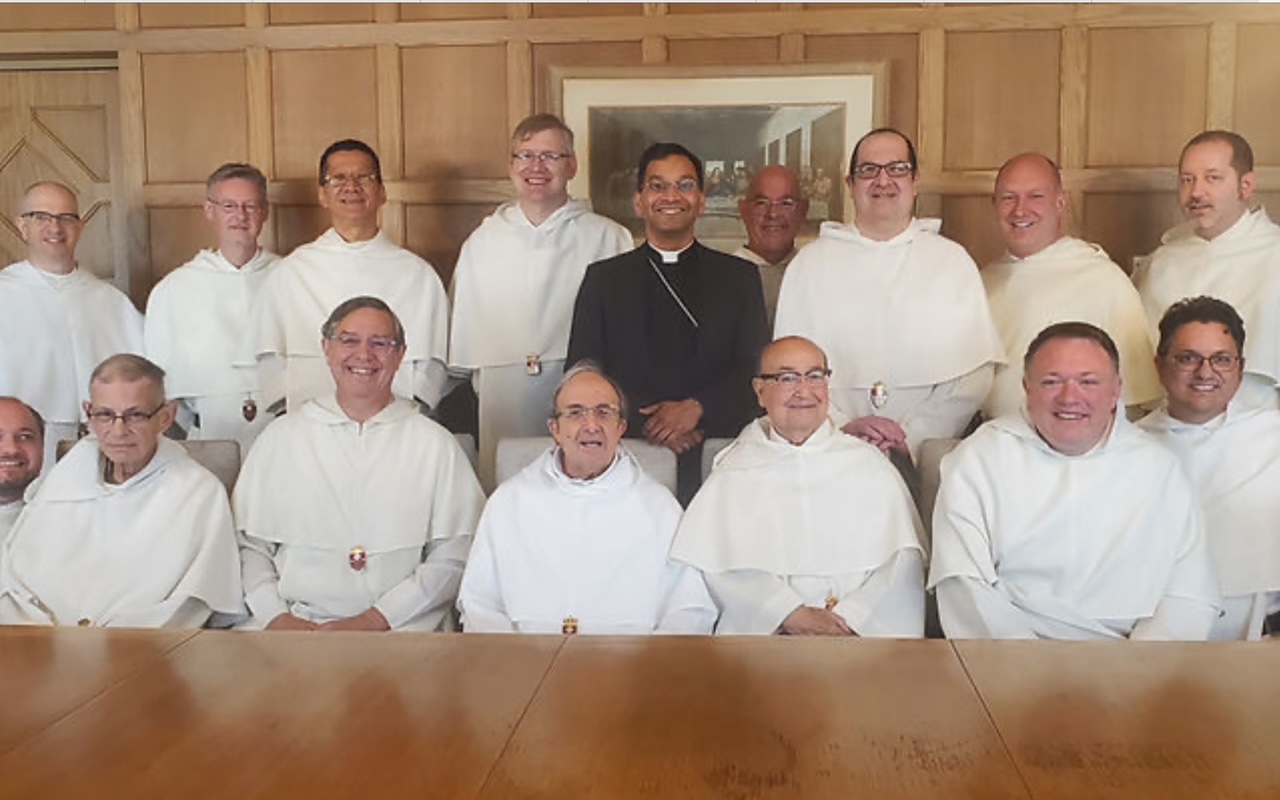Today is the second homily in our series The Anxious Generation, in which Jesus is calling us to love our children better with regard to phones, devices, and social media.
Let’s look at four problems, the underlying theme being relationship.
1) This graph (Jonathan Haidt, The Anxious Generation, 43) is entitled ‘Alienation in School, Worldwide’: In 37 countries, 15-year-olds were asked questions like ‘I feel lonely at school,’ or if they have difficulty making friends. Around 2010, everything spiked.
2) ‘Daily Time with Friends, by Age Group’ shows that all of us are spending less time together, but those aged 15 to 24 are spending far less time than before, even though they need the most time to foster social development. (121) The more we’re online, the more the quality of our relationships decreases.
3) This chart measures the statement, ‘Life often feels meaningless,’ in which more high school students are answering this affirmatively. Dr. Haidt suggests that when we’re disconnected from stable, real-world communities, we feel lost. (195)
4) “Daily Porn Users, Swedish 12th Graders” shows, within ten years, boys doing this went from 10% to 24%. Pornography is a self-focused act that uses people as objects—bad for relationships. (188)
But the greatest problem with the phone-based life is that it hinders our relationship with Jesus. We and our children are conditioned, for example, to watch a short video about something amazing, feel moved, then move to the next video (215); our children are conditioned to be consumers of content and so struggle to hear the truth that God wants a relationship with them.
Jesus says today, “For God so loved the world that he gave his only-begotten Son, so that everyone who believes in him may not perish but may have eternal life. Indeed, God did not send the Son into the world to condemn the world, but in order that the world might be saved through him” (Jn 3:16-17). Let’s make three points about this Gospel:
1) Here’s a question I’ve asked twice before: Is Christianity about becoming a good person? No. Christianity is about a relationship. Through this relationship, we become better, but that’s not the point.
It’s like marriage. Who here got married to become a better person? We get married because we want to love the other person and love children, if God gives them.
This applies to our school and PREP program—they don’t exist to make our children good. They exist so that our children can encounter Jesus. Through this, they will become saints and the best people possible, and learn as much as possible.
So the first point is God created us to be in a loving relationship with Him. Some of us have heard this analogy: If someone famous were to say to a crowd that he loves them, people might believe it, but it wouldn’t change them. But if that same person were to walk into the crowd and say to an individual that he loves him or her, then it’s a completely different meaning. And that person would have to accept that love or not. This is how God loves us—it’s personal. Can we hear this?
2) God is faithful to our relationship, though we’ve broken it.
When I mentioned earlier pornography, there’s something in most people that feels a bit uncomfortable. I remember hearing about an atheist comedian who admitted that he wasn’t proud of looking at pornography. He mentioned that something inside him says, ‘This isn’t the best thing for me. I don’t feel good about myself.’ There are certain sins that just hearing the word bothers us: ‘fornication,’ ‘drunkenness,’ ‘adultery.’ But the discomfort is a sign that the Holy Spirit is calling us back!
Two words in the Gospel describe our broken relationship with God: ‘perish’ and ‘condemn.’ Without Him, we perish. And St. John writes we’re the ones who condemn ourselves, not God.
No matter how many times we sin, God still loves us. The words ‘life’ and ‘saved’ show that Jesus didn’t come to make bad people good. He came to make dead people alive, to save a relationship.
There is a group of friars in the Church called Mercedarians, founded in 1218 with one of the coolest missions in the entire Church: raise money to pay the ransom for people who were imprisoned by the Moors, just south of Spain.
They even took a fourth vow that, if necessary, they would take the place of one prisoner, in order to free him. In 1229, St. Serapion ransomed 150 prisoners. 11 years later while trying to free more, he was taken captive while waiting for payment to arrive, but, when it didn’t, he was executed.
Today, we celebrate the Exaltation of the Holy Cross, the fact that, though we’re dead in our sins, Jesus gives His life in exchange to bring us to life.
When I was young, I had this fear that people at church knew my sins. The devil was taking healthy guilt, twisting it into unhealthy guilt and discouraging me, and I’d feel like I wanted to hide. But the Holy Spirit would encourage me. One time an amazing priest said to me about my irrational thoughts, ‘Oh, that’s crazy.’ His saying that authoritatively about my crazy thoughts helped set me free, because thoughts that lead us away from Jesus and the power of His Cross are crazy.
3) Relationships require a response. We can stay away from Jesus, but, if we choose, we can ‘believe in Him.’ Everything Jesus commanded fosters healthy relationships with Him and then with others.
Dr. Haidt notes two features of real-world relationships: 1) They’re embodied: Jesus didn’t just text us saying He loves us; He died with His body. And we respond by getting physically baptized with water, going physically to Mass, going to Confession. I would love to hear Confessions by phone; I could stay in Whistler and take your calls. But the virtual world is disembodied, conditioning us not to give a full response to Jesus and others. 2) Real-world relationships are synchronous. Mass, Alpha, Faith Studies happen with people at the same time, whereas the virtual world is asynchronous, meaning you message me and I can respond sometime later (9).
Here now is an invitation to explore faith. Let’s invite anyone we know who’s exploring faith to Alpha, starting Thursday, September 18, 2025 at 6:45 p.m. There’s no pressure to come and no pressure to stay, just a warm invitation to try it out.
We end with some of Dr. Haidt’s practical recommendations for children. Parents, of course, choose what is right for their children. For children ages 6-13, 1) Practice letting your kids out of your sight. E.g. Send them to the nearby grocery store to pick up food. 2) Encourage sleepovers, and don’t micromanage them. 3) Encourage walking to school in a group. 4) After school is for free play, not adult-supervised ‘enrichment’ activities. 5) Go camping (272-273).
For teens, 1) Increase their mobility, with bikes, public transit, and getting a driver’s license as soon as possible. 2) Rely more on your teen at home, with their cooking, cleaning, running errands. 3) Part-time job. 4) High school exchange program. 5) Bigger thrills in nature: backpacking, rock climbing, canoeing, hiking, swimming.
Realize that every time we come to St. Anthony’s for Mass, Confession, the chapel, any parish event, we and our children are being rewired for healthy relationships. Most importantly, our relationship is stronger with the One Who created us, died on the Cross for us, and rose for us.


